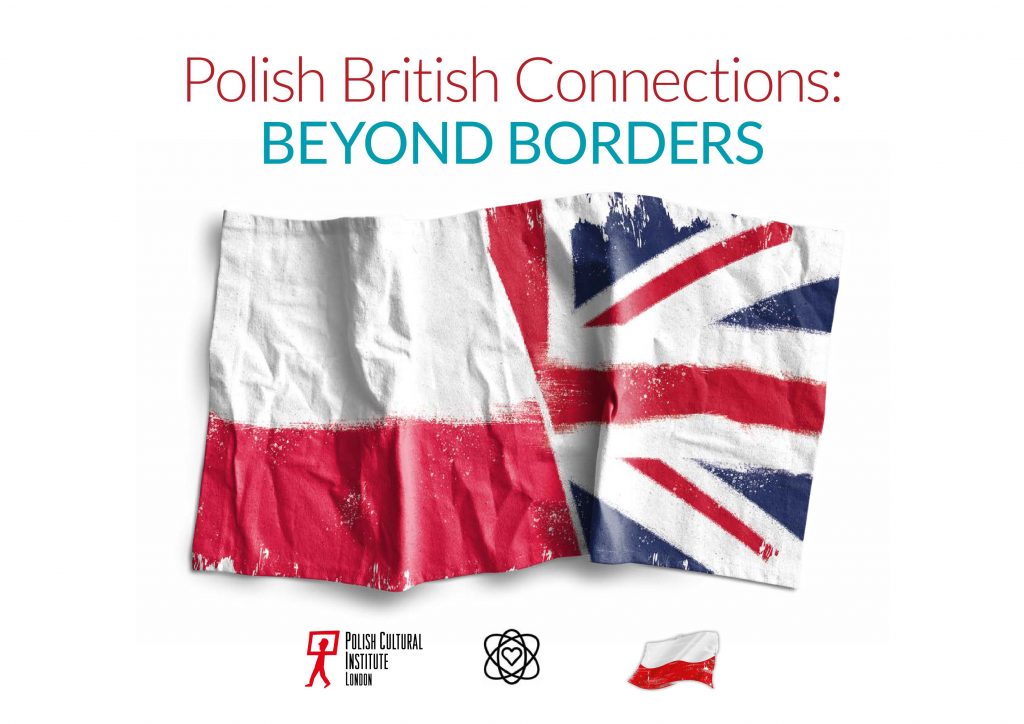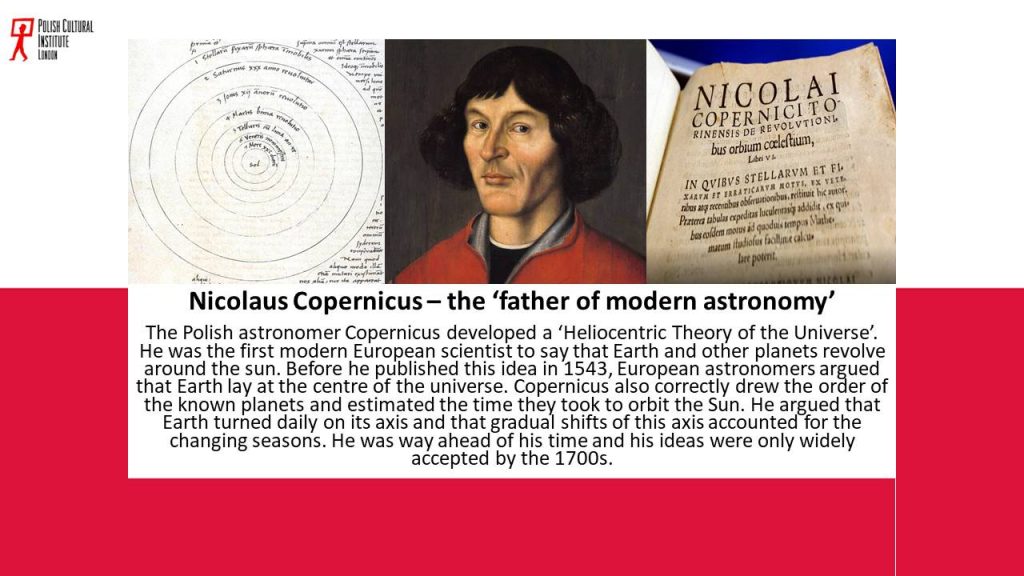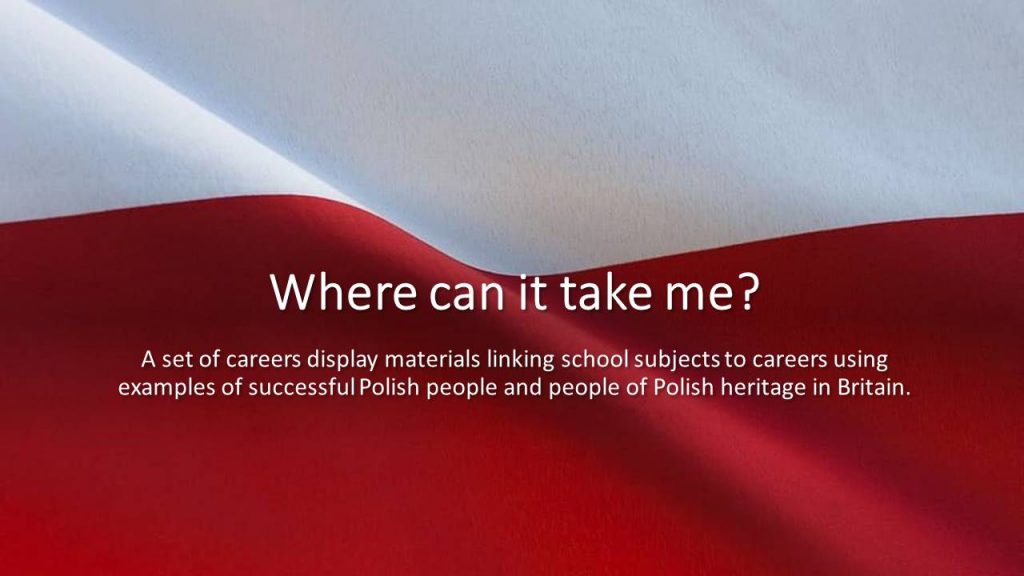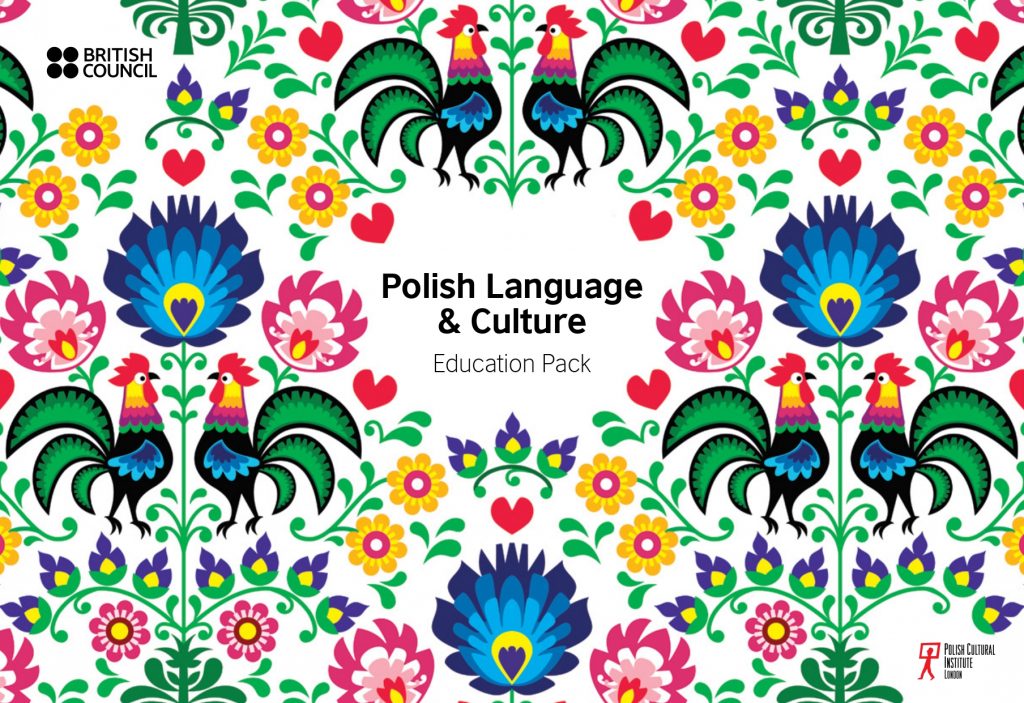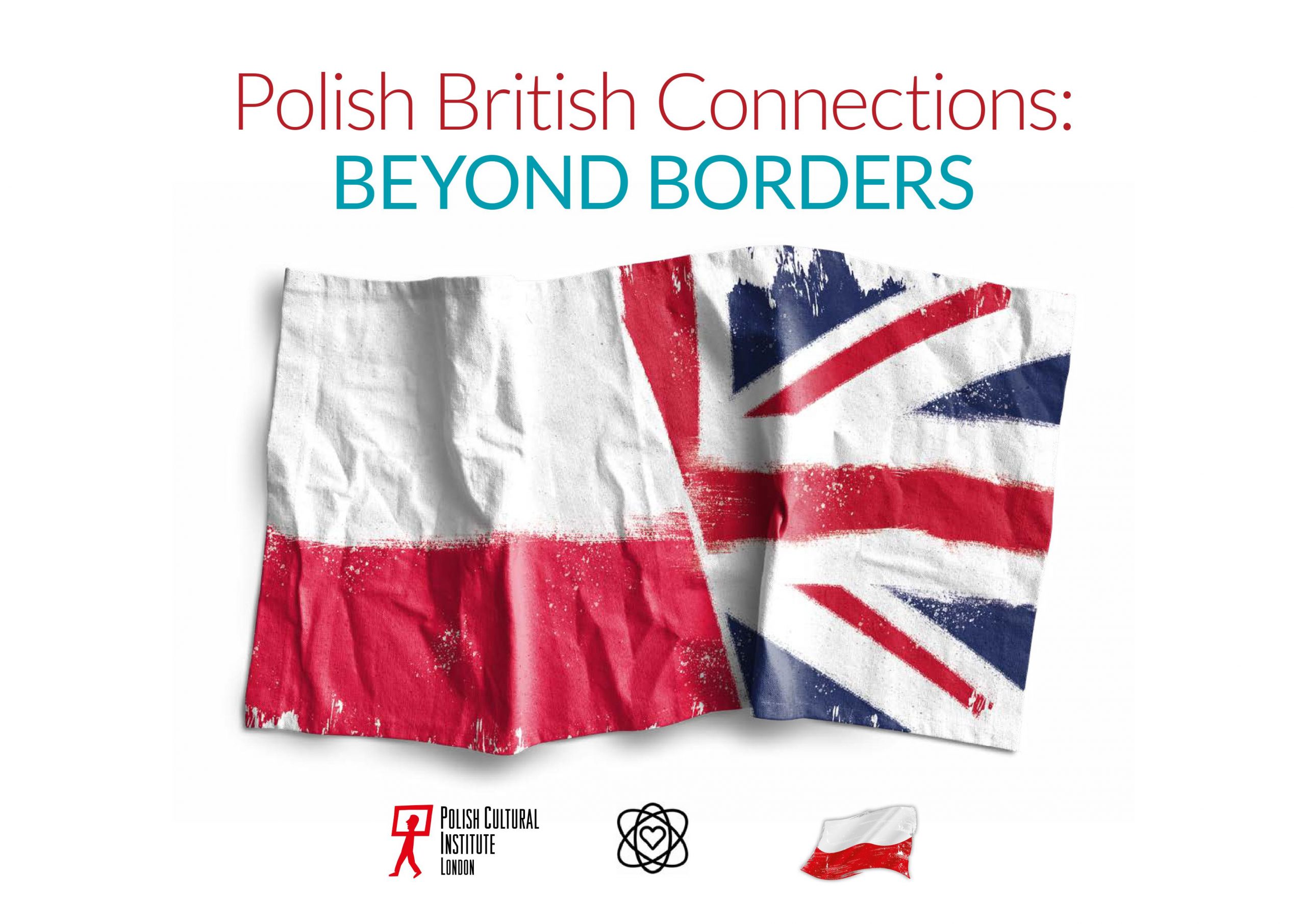
Welcome to the Education page.
Here you will find downloadable and adaptable teaching resources for upper primary and secondary levels.
They are designed to help teachers in schools to include Poland and Polish people in the curriculum.
There are many children who are Polish, or of Polish heritage, in British schools. The curriculum should show them that they belong. And all children need to learn about the many different people who call Britain home.
These resources are designed to help teachers to go beyond borders.
On this page you can find:
• Polish British Connections: Beyond Borders – a pack of materials to make Poland a theme in school, with accompanying PowerPoint resources and short films.
• Exploring Polish Science and Maths – to introduce pupils to the contributions of Polish peoples to the development of science and maths, and their impact on society.
• Polish Literature Lesson for Younger Pupils – using the work of Janusz Korczak to explore the purpose of fairy tales.
• Exploring Polish Music – introducing a wide variety of Polish music across time.
• Polish Migration to Britain 1832-2020 – a sequence of learning for the secondary history classroom.
• Polish Curricular Connections! – printable posters linking Poland and Polish people to school subject areas.
• Where Can It Take Me? – a careers display using examples of successful Polish people.
• Polish Language and Culture: Education Pack – materials to introduce Polish and Poland to primary pupils.
Polish British Connections: Beyond Borders
This pack contains materials for a Polish themed week in schools and the materials can also be used more flexibly. Links are also provided to further materials online.
Irena Sendler and Janusz Korczak were ordinary Polish people who did extraordinary things. They had values we can admire. They lived in the 20th century and stories from their lives provide windows into Polish life, history, scientific achievement and culture. This pack explores what we can learn from their lives and values, from Polish and British alliances against oppression, and how we should remember the past to build the future.
There are about 800,000 Polish people living in Britain today and many more British people have Polish heritage. This pack will help teachers to teach about Poland and some of the past and present of Polish and British connections. This is important so that Polish children feel that they belong in the school community and other children learn more about the many people who call Britain ‘home’. The materials are designed for upper primary and secondary school age children.
Assembly 1: The values we live by reach beyond borders
This assembly takes the theme of human values. Using the story of the Polish woman Irena Sendler (1910-2008) it asks students to think about why her story has touched people across borders. Irena was someone who was prepared to take a stand against the prejudice she found around her and then to risk her life for others. She worked with other like-minded people. She was determined, courageous and had a firm belief in our shared humanity. Her story reaches beyond borders as an example of bravery and kindness that is not bound by the divisions that can be created by hatred and intolerance.
Assembly 2: Remembering can inspire us!
This assembly takes the theme of remembering to take inspiration from people in the past. It starts with the statue of Irena Sendler put up in Newark in 2021. Statues are put up in public places. One role of statues is to honour people who society wants to admire and remember. If statues are to be a useful part of remembering,
then we need to know their historical context so that there can be continued thinking about what we admire and want to remember about the people they represent. Irena’s story has many elements that are inspiring and are important context to her statue.
Download notesheet for Irena Sendler film here.
Assembly 3: Working together we can do good!
This assembly takes the theme of working together to overcome evil and do good. It starts with the team who saved Irena Sendler from execution; a link to the previous assemblies, and then gives examples of Polish people working with other Europeans to defeat Nazi Germany in World War Two. The examples are code-breakers, spies and pilots. These examples are to inspire pupils to think about working together for a good cause.
Exploring Polish Science and Math
Introduce students to a variety of Polish contributions in the fields of science and maths over time and, via these contributions, to aspects of science and society. Students could then research other Polish contributions, both in the past and the contemporary world. You may also find it helpful to use the material on Enigma code-breaking in the ‘Polish-British connections beyond borders’ booklet. In the booklet called ‘Polish Culture and Language’ you will find resources for primary school science and maths.
Polish Literature Lesson for Younger Pupils
This lesson uses some of the work of Janusz Korczak to explore the purpose of fairy tales.
Exploring Polish Music
Introduce students to a variety of Polish music and musicians. Students could then connect Polish music and musicians to a wider timeline of developments in global music.
Polish migration to Britain 1832-2020
Complete Sequence Pack discussing Polish migration from 1832-2020. Covering:
• The reasons why Polish people moved to Britain and how the reasons changed or stayed the same over time.
• The similarities and differences between Polish people’s experiences of moving to and living in Britain.
• The different ways that Polish people have influenced British society.
The pack includes: 3 Lessons, Worksheet, Notesheet and Lessons Plan.
Polish Curricular Connections!
A set of printable posters to display in departments to make links between school subjects and Poland and with people who are Polish/of Polish heritage.
Where can it take me?
A set of careers display materials linking school subjects to careers using examples of successful Polish people and people of Polish heritage in Britain.
Polish Language & Culture: Education Pack
This education pack is designed to help mainstream primary teachers introduce aspects of Polish language and culture to their pupils aged 7–11. It contains lesson and assembly plans, factual information and resources to help pupils develop a deeper knowledge and understanding of the rich language, geography and culture of Poland.
The materials are designed to be flexible and adaptable for use in a variety of settings. They can be used as starting points for individual lessons and assemblies or form part of larger cross-curricular joint projects involving collaboration over a number of subjects.
Your pupils can learn how to greet a friend in Polish, get creative making paper cut-outs, and find out about many aspects of Polish culture by using our wide range of classroom resources and activities.

